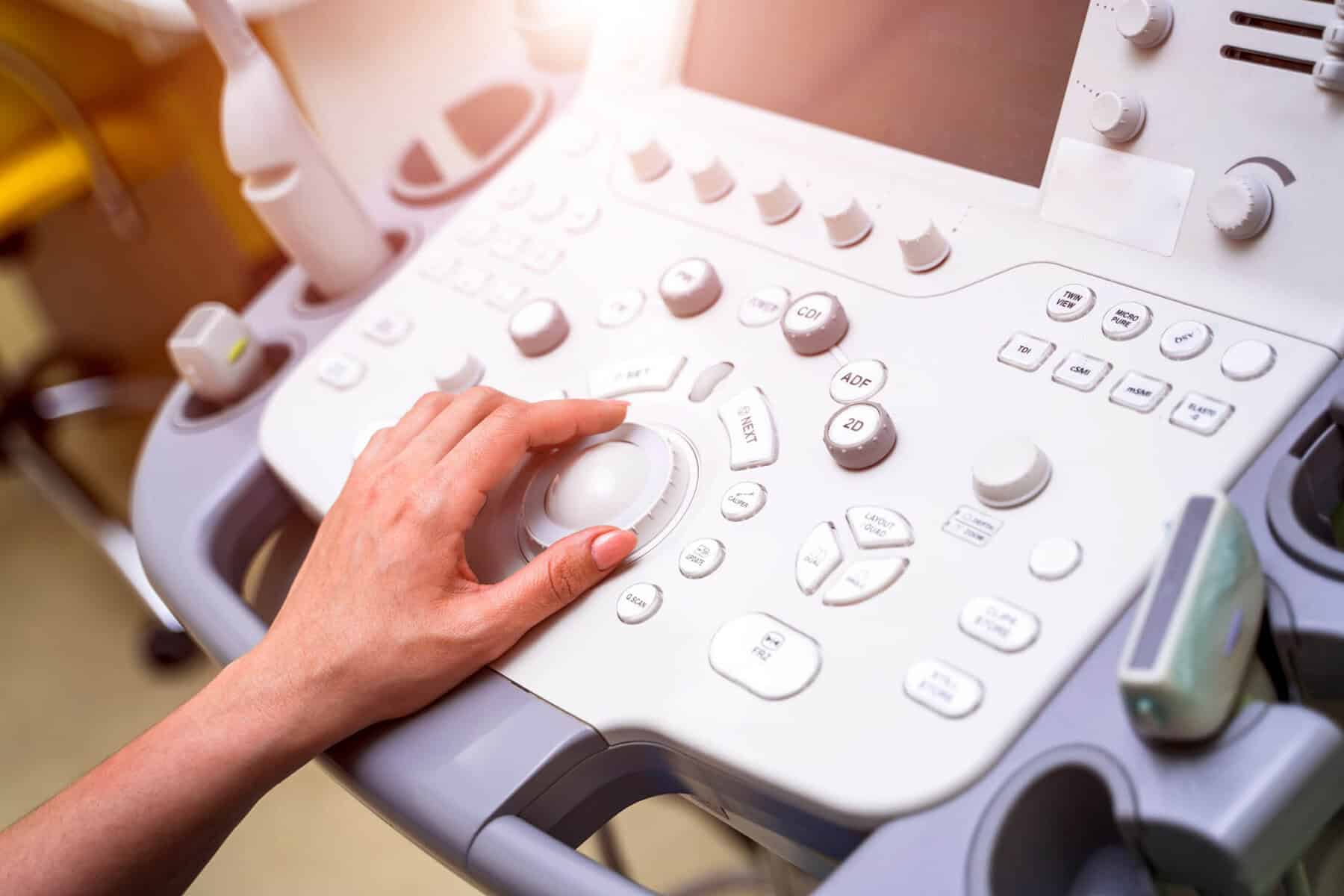Musculoskeletal Ultrasound
Musculoskeletal ultrasound is a non-invasive imaging technique used to assess muscles, joints and tendons. This dynamic scan provides real-time visuals, helping to diagnose injuries and conditions affecting movement and mobility.

MSK Ultrasound Scans
Our musculoskeletal ultrasound scans provide detailed imaging of joints, muscles and soft tissues, aiding in precise diagnosis and tailored treatment planning for a wide range of conditions.
Shoulder & Upper Arm Scan
Assesses rotator cuff injuries, tendon tears, and joint inflammation for accurate diagnosis and treatment planning.
Elbow & Forearm Scan
Evaluates conditions such as tennis elbow, nerve compression, and soft tissue injuries affecting mobility and function.
Wrist & Hand Scan
Assess for swellings and inflammation of the wrist and hand joints and surrounding tendons to support effective treatment.
Knee Scan
Assess for quadriceps or patellar tendon injury and for ruptured popliteal (Baker’s) cysts.
Ankle & Foot Scan
Assess for Achilles tendon and other tendon tears and inflammation, as well as plantar fasciitis.
Groin & Hernia Scan
Can identify and categorise inguinal and femoral herniae and other groin swellings.
Lumps & Bumps
Evaluate lumps that are growing in size or have become painful over a period of time, typically in the arms, body or legs, including ganglia and lipomas.
Overview of musculoskeletal ultrasound
A musculoskeletal ultrasound is a specialised scan offering a safe and effective evaluation of musculoskeletal structures. By using high-frequency sound waves, it produces detailed images of soft tissues, allowing specialists to identify inflammation, injuries or abnormalities. The procedure is widely used for assessing sports injuries, joint conditions and chronic pain issues. At The Forbury Clinic, our expert imaging specialists use advanced ultrasound technology to ensure accurate assessments and personalised care.


What is musculoskeletal ultrasound?
This type of ultrasound is used to assess soft tissues, including muscles, tendons and joints. A highly trained Consultant Radiologist applies gel to the skin and moves a handheld probe over the affected area, capturing real-time images. A musculoskeletal ultrasound is particularly effective for detecting inflammation, tears, fluid build-up and other musculoskeletal abnormalities, offering a clear view of structural issues within the body.
Why would you need a musculoskeletal ultrasound?
A musculoskeletal ultrasound may be necessary to investigate unexplained pain, swelling or reduced mobility in the muscles or joints. It helps diagnose certain conditions such as joint and tendon inflammation, tendon tears and assessment of small lumps, providing essential information for treatment planning. Additionally, it is commonly used for accurately guiding injections into joints and around tendons as appropriate.
How does a musculoskeletal ultrasound work?
High-frequency sound waves are transmitted through a handheld probe, which captures images of the underlying tissues. As the sound waves bounce off different structures, a computer processes the returning signals to generate detailed visuals. The scan allows specialists to observe movement in real time, which is particularly beneficial for assessing joint function and detecting abnormalities during motion.
Is musculoskeletal ultrasound painful?
This imaging technique is completely non-invasive and does not cause pain. The ultrasound probe is gently moved over the skin, with a gel applied to enhance image clarity. In some cases, slight pressure may be felt if the scanned area is tender, but the procedure itself is entirely comfortable and pain-free.


How long does a musculoskeletal ultrasound take?
Most musculoskeletal ultrasound scans take between 15 to 30 minutes, depending on the area being examined and the complexity of the condition. The Consultant Radiologist will typically explain the findings at the end of the examination, when you can ask questions. A formal report will also be sent to the medical doctor or healthcare professional who referred you, where you can discuss your overall management further.
What conditions can musculoskeletal ultrasound detect?
This scan is useful for diagnosing a range of conditions, including tendon and ligament injuries, joint inflammation, fluid build-up, muscle tears and nerve entrapments. It is particularly effective in detecting soft tissue abnormalities that may not be visible on traditional X-rays.
Is musculoskeletal ultrasound better than an x-ray or mri?
Musculoskeletal ultrasound provides real-time imaging, making it ideal for assessing soft tissue injuries, monitoring movement and guiding treatments. In contrast, X-rays are primarily used for detecting bone fractures and arthritis, while MRI scans offer detailed images of deep tissues. Ultrasound is often preferred for its accessibility, safety and ability to capture dynamic motion, making it a highly effective diagnostic tool in many cases. In addition, ultrasound is the test of choice for the majority of guided injections.

Why Choose The Forbury Clinic?
Our Consultant Radiologists are highly trained medically qualified doctors who are all based in Reading and each subspecialise in different parts of the body. You will not be scanned by a non-medically trained sonographer.